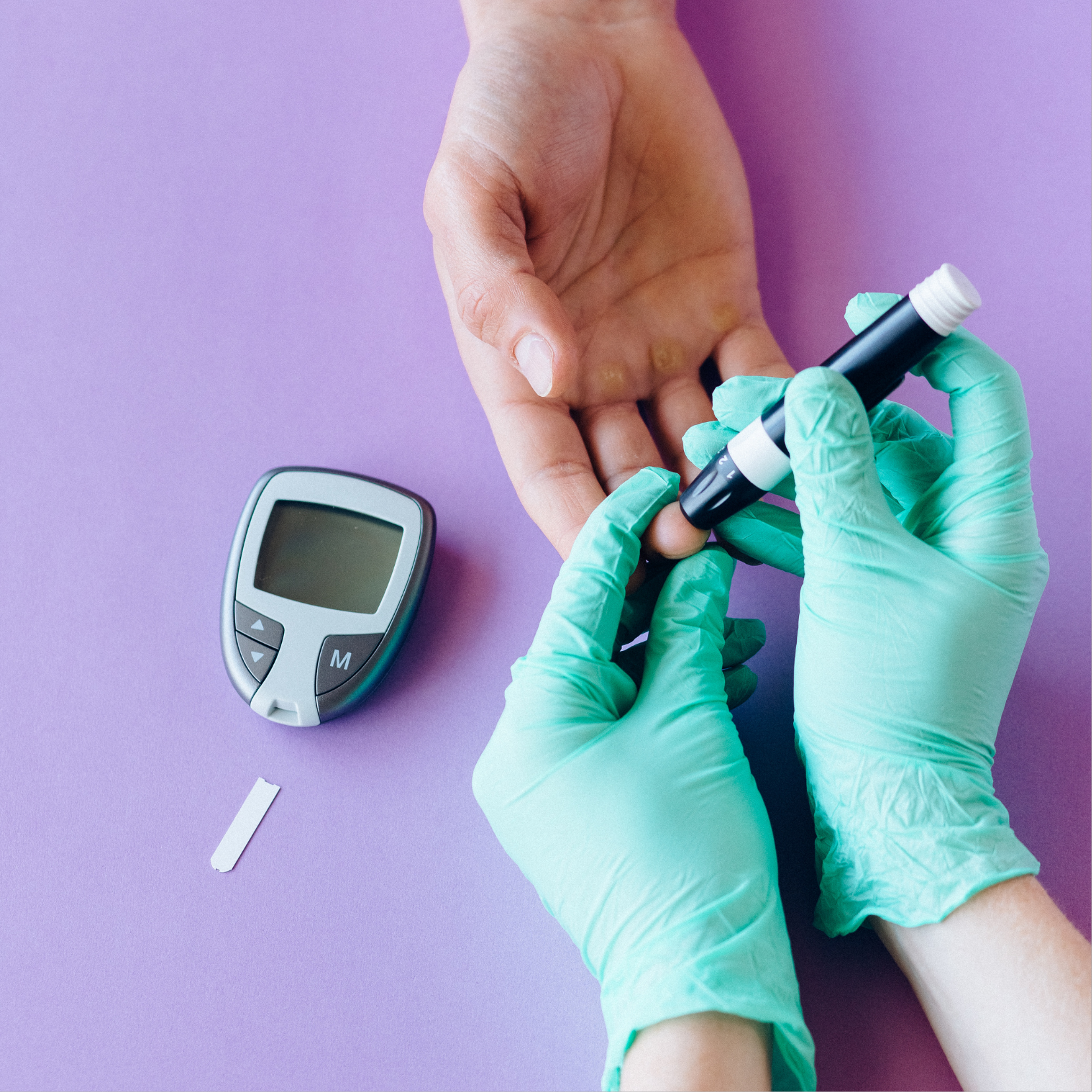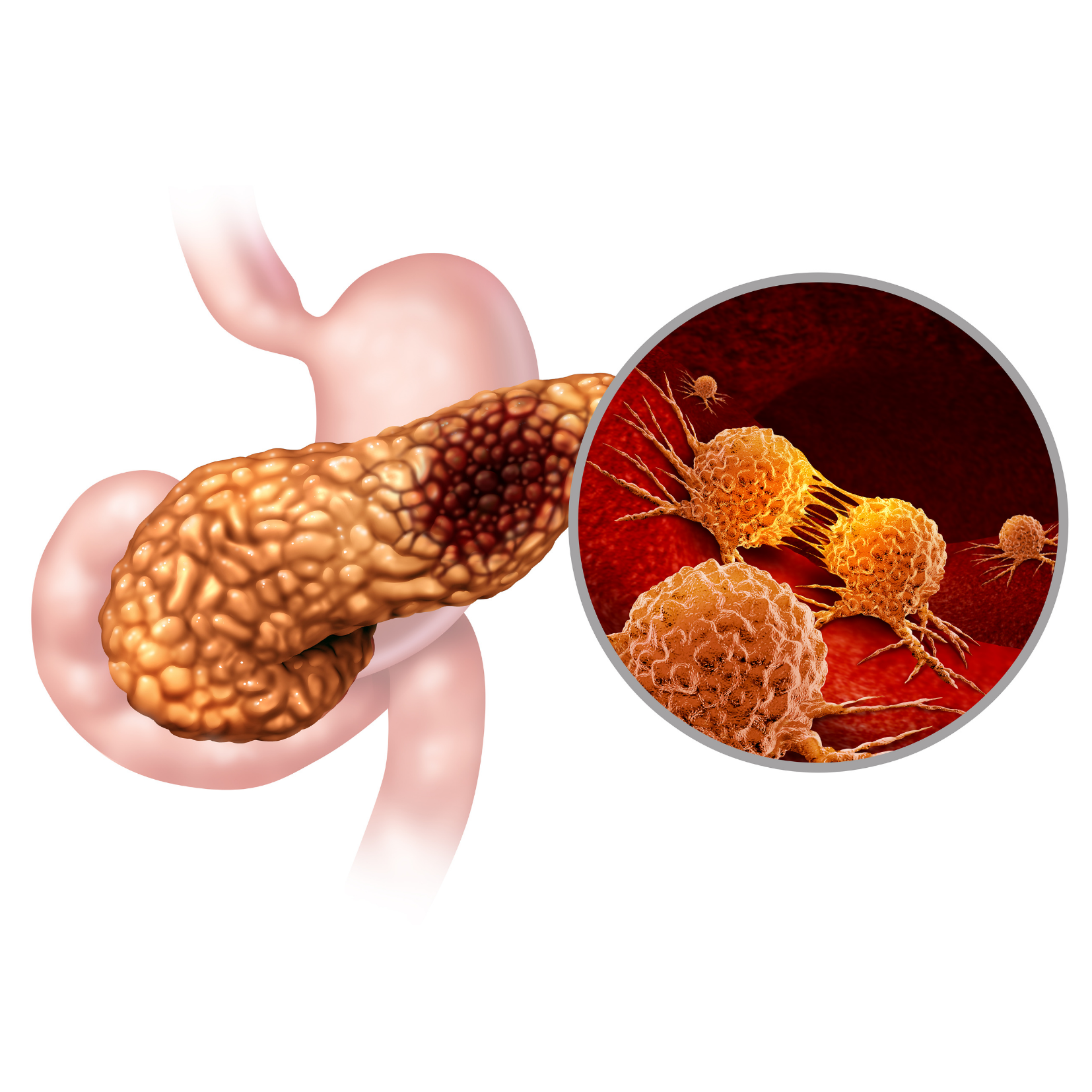The Role of Vitamin D in Pancreatic Disease
Jul 11, 2022
Nearly everyone has heard of the so-called “sunshine vitamin” However, the wide range of benefits and functions that vitamin D offers are less commonplace. This fat-soluble vitamin plays roles in bone health, cancer, and inflammation, which is the source of many prominent diseases. More specifically, vitamin D is highly involved in pancreatic diseases including diabetes, pancreatitis, and pancreatic cancer.

Sources of Vitamin D
Vitamin D can be obtained from a variety of sources, including:
- Sun exposure: Vitamin D2 and vitamin D3, which are both naturally occurring forms of vitamin D, are produced by exposure to the sun’s UVB rays.
- Supplements: The main way that people ensure they have adequate Vitamin D intake is by taking supplements. Vitamin D2 and vitamin D3 are both available as supplements, and they are especially useful for those who live in areas with limited sunlight. Supplementation may also be helpful for people with darker skin, as increased amounts of melanin lower the production of vitamin D in the skin.
- Dietary sources: Vitamin D can be obtained from foods. However, it is difficult to obtain adequate doses of it through diet alone. The most common foods that contain vitamin D are fish such as salmon, swordfish, and sardines. Vitamin D-fortified milk and orange juice can also be a dietary source.
Recommended Dosage of Vitamin D
The recommended dosage of vitamin D is measured in international units (IU). This form of measurement is a global unit that indicates the amount of a substance that causes a certain biological response.
 The recommended daily amount of vitamin D intake is generally consistent across age groups. For people age 1-70, the recommendation is a dosage of 600 IU. Infants under the age of 1 should have 400 IU per day, and those over 70 need 800 IU daily. However, it is common for people to be deficient in vitamin D and obtain amounts well under these numbers due to lack of sun exposure and variation in skin pigmentation.
The recommended daily amount of vitamin D intake is generally consistent across age groups. For people age 1-70, the recommendation is a dosage of 600 IU. Infants under the age of 1 should have 400 IU per day, and those over 70 need 800 IU daily. However, it is common for people to be deficient in vitamin D and obtain amounts well under these numbers due to lack of sun exposure and variation in skin pigmentation.
Vitamin D is generally safe in quantities that exceed the daily recommended amounts. However, taking too much vitamin D can become harmful at very high doses. Those who exceed 4,000 IU of vitamin D per day can experience side effects such as nausea, digestive problems, kidney damage, and issues with heart rhythm.
Vitamin D and Diabetes
Vitamin D has been shown to affect the biological pathways that lead to diabetes, specifically Type II. It does so by modulating beta cells within the pancreas and controlling inflammation and insulin resistance, which are characteristic of the disease.
 According to a 2017 study using observational data, those who are deficient in Vitamin D are more likely to develop both Type I and Type II diabetes. This data was deemed conclusive enough to derive causation between vitamin D deficiency and diabetes risk. Additional data from Martin and Campbell’s 2011 publication indicates that obtaining sufficient vitamin D can not only minimize risk for diabetes, but also plays a role in improving metabolic control of hormones and blood sugar levels in those who already have diabetes.
According to a 2017 study using observational data, those who are deficient in Vitamin D are more likely to develop both Type I and Type II diabetes. This data was deemed conclusive enough to derive causation between vitamin D deficiency and diabetes risk. Additional data from Martin and Campbell’s 2011 publication indicates that obtaining sufficient vitamin D can not only minimize risk for diabetes, but also plays a role in improving metabolic control of hormones and blood sugar levels in those who already have diabetes.
In the relationship between vitamin D and diabetes, it is important to note that the recommended amounts may vary by individual depending on whether the patient already has diabetes or is simply at risk for developing it. More research is needed to find the exact dosages that are optimal for each type of patient.
Vitamin D and Pancreatic Cancer
In addition to diabetes, vitamin D is also linked to pancreatitis and pancreatic cancer, two associated diseases of the pancreas. Those with pancreatitis, or inflammation of the pancreas, are at higher risk of developing pancreatic cancer, which is the fourth leading cause of cancer death in America.
 Various studies conducted on both animals and humans have indicated that adequate vitamin D levels can slow tumor growth rate and stop the initial development of tumors. Two long-term surveys conducted in 2006 found a correlation between optimal vitamin D levels and reduced risk for pancreatic cancer. Consuming amounts of vitamin D within the range of 300-450 IU was associated with a 43% lower risk of pancreatic cancer than consuming quantities under 150 IU. Consuming over the recommended amount of 600 IU led to a 41% reduction in pancreatic cancer risk.
Various studies conducted on both animals and humans have indicated that adequate vitamin D levels can slow tumor growth rate and stop the initial development of tumors. Two long-term surveys conducted in 2006 found a correlation between optimal vitamin D levels and reduced risk for pancreatic cancer. Consuming amounts of vitamin D within the range of 300-450 IU was associated with a 43% lower risk of pancreatic cancer than consuming quantities under 150 IU. Consuming over the recommended amount of 600 IU led to a 41% reduction in pancreatic cancer risk.
Vitamin D can also be effective in combating tumors for those who have already developed pancreatic cancer. It has been shown to promote the apoptosis, or cell death, of cancer cells and have anti-inflammatory effects in several metabolic mechanisms related to cancer. Evidence has conclusively shown that higher vitamin D levels improve survival rates for cancer patients.
Summary
Overall, vitamin D plays a highly important role in various metabolic processes involved in diseases of the pancreas. Vitamin D can be obtained from sun exposure, supplements, and dietary sources. The recommended amount of vitamin D is 600 IU for the majority of the population, though it may vary due to age and disease-related factors.
Vitamin D levels are directly linked to diabetes through control of beta cells in the pancreas. Consuming adequate vitamin D can aid in preventing both Type I and Type II diabetes, and it can also improve symptoms for those who already have diabetes.
The “sunshine vitamin” also plays a role in pancreatitis and pancreatic cancer. It reduces the risk of developing pancreatic cancer and can slow the growth of tumors that are present.







